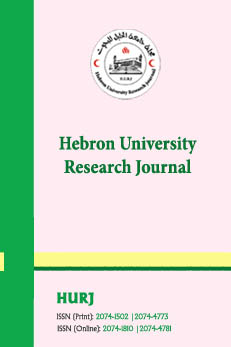Ph.D. in Islamic Jurisprudence & its Fundamentals
Course Descriptions
View Course description as PDF file:
The student is granted a PhD degree in Islamic jurisprudence and its foundations after successfully completing the following requirements:
1- Pass the remedial courses specified by the program coordinator.
2- Passing 48 credit hours with a cumulative average of not less than 75%. distributed as follows:
First: (16) compulsory academic hours.
Second: (12) optional academic hours.
Third: (20) hours of university thesis.
3- Pass the cognitive proficiency exam; the student is permitted to apply for the exam after passing passes the compulsory courses.
Compulsory courses: 16 credit hours
|
Number |
Course title |
Credit hours |
Course type |
|
1- |
Secondary Sources of Legislation and their Contemporary Implementations |
3 |
Theoretical |
|
2- |
Principles of Juridical Reasoning, and how to Renew them |
3 |
Theoretical |
|
3- |
Special Topics in Islamic Jurisprudence of Financial Transactions |
3 |
Theoretical |
|
4- |
Special Topics in Islamic Jurisprudence of Punishment |
3 |
Theoretical |
|
5- |
Islamic and Contemporary Political Systems |
3 |
Theoretical |
|
6- |
Seminar |
1 |
Practical |
Elective Courses: 12 credit hours
|
Number |
Course title |
Credit hours |
Course type |
|
1- |
Objectives of Islamic Sharia and their Contemporary Implementations |
3 |
Theoretical |
|
2- |
Personal Status Laws in the Arab World |
3 |
Theoretical |
|
3- |
Contemporary Medical Issues in Islamic Jurisprudence |
3 |
Theoretical |
|
4- |
Theory of Wrongful Act and Compensation in Jurisprudence and Law |
3 |
Theoretical |
|
5- |
Court Proceedings and Appeals |
3 |
Theoretical |
|
6- |
Similarities and Differences in Islamic Jurisprudence |
3 |
Theoretical |
|
7- |
Comparative Studies in Arab Civil Laws |
3 |
Theoretical |
|
8- |
Special Topics in Fundamentals of Islamic Jurisprudence |
3 |
Theoretical |
|
9- |
Comparative Juridical Textual Studies |
3 |
Theoretical |
Description of the courses and objectives for each course and its relationship to the objectives of the program:
Secondary Sources of Legislation and their Contemporary Implementations
This course includes studying a number of Secondary Sources of Legislation, such as: public interests, juristic discretion, blocking the means, traditions, previous laws, sayings of the prophet’s companions, and the presumption of the continuity, and to elude its effects on the ijtihad of renewable cases.
Principles of Juridical Reasoning, and how to Renew them
This course involves the fundamentalism related to ijtihd. As well as it examines deeply the principles of ijtihad and its characteristics, according to the Imams of the four doctrines and their followers, and to Ibn- Hazim, Ibn- Taimia, Ja’far Al-sadeq, and Zaid Ibn Ali. It also includes landmarks of juristic ijtihad of modern times, Journal of Justice Judgments “al'ahkam aleadlia” , "Murshid Alhayran Limaerifat Ahwal Aliansan" book, Encyclopedias of Islamic Jurisprudence , Islamic Fiqh Academies and its institutions, prospects for renewing and legalizing Islamic fiqh, in addition to the conditions and rules of fatwa.
Special Topics in Islamic Jurisprudence of Financial Transactions
Advanced study in certain selected topics from Islamic commercial jurisprudence, such as: (Riba Buyu`) Usury of Trade, (Gharar) uncertain sale, Ill-gotten money and its rules, Common property and Division, contacting as one of the reasons of owning property, franchising، bankruptcy and interdiction, beneficial act, set-off in debt, contractors' requirements, termination of contracts, Corporate profit distribution rules, currency exchange rules, rights and compensation, sale on credit and its contemporary applications.
Special Topics in Islamic Jurisprudence of Punishment
This course includes an advanced study in some of the chosen topics of Islamic Jurisprudence of Punishment such as the capital punishment, issues of blood money and its provisions, collective oath, as well as some mandatory punishment like Apostacy and contemporary applications related to it, general legislative comparison between Islamic fiqh and statutory law in punishments fiqh field , and Islamic legislation purposes in punishment section.
Islamic and Contemporary Political Systems
This course includes studying a set of juristic and contemporary cases which relates to the internal and external political aspect, including the Islamic regulations for the political aspect and its characteristics, Al-Madinah State and its components, legal political science and its key foundations and books, contemporary political systems, concepts of state، sovereignty, and Ummah, concept of the civil state, Islamic constitution and its sources and law-making methods, principle of separation of powers, consultation and democracy rights and public freedoms in the Islamic state and its guarantees, elections and parties, Bay'ah "Pledge of allegiance", the ruler and his conditions, ways of inauguration, limits of authority and responsibility, and the end of governance, the elites of the Muslim community and their nature, conditions, selection, and their authorities and responsibilities, political rights of women, Non-Muslims rights in Islamic community, the relation of the Islamic state with other states as the diplomatic relations, war rules, and agreements rules.
Seminar:
This course includes familiarizing students with modern scientific research methods, and training students on the proper scientific methods in writing scientific research and dissertations.
Objectives of Islamic Sharia and their Contemporary Implementations:
This course includes the following subjects: defining the Objectives of Islamic Sharia, its significance and when putting down it in writing , reasoning of Islamic verdicts, classifications of legitimate purposes, its ranks and types, the rules of Al Maqâsid "objectives" of contemporary public benefit and public harm and its applications, the rules of Al Maqâsid of removing hardship principles and its contemporary applications, the rules of Al Maqâsid of action outcome, liables’ purposes and its contemporary applications. It also includes the concept of legal outcomes, significance, applications, and its relation to legitimate purposes, and its importance of tackling jurisprudential development.
Personal Status Laws in the Arab World
The student studies in depth the personal status laws in the Arab world, in terms of their origins, their relationship to Islamic jurisprudence, their characteristics, the differences between them, the most important topics they have addressed, the amendments that have followed, and the problems raised about the articles in them. Differentiation by khul' and the issues of international conventions on the family, women and populations in legal terms.
Contemporary Medical Issues in Islamic Jurisprudence
This course deals with the study of a set of jurisprudential developments in medical issues, such as: provisions for organ transplantation and transfer. IVF. Insemination with sperm away from the husband (in the event of the husband's death, absence or imprisonment). Surrogacy rental. Utilization of stem cells. reproduction. Provisions of sterilization and contraception. Plastic surgery provisions. Provisions for determining the sex of the fetus. Taboo medication. Genetic fingerprint and its impact on parentage proof and denial.
Theory of Wrongful Act and Compensation in Jurisprudence and Law
This course deals with the study of the theory of security and Wrongful act, a comparative study with negligent liability in positive laws, while examining contemporary applications, such as civil liability of a physician, civil liability of a minor, civil liability of websites and media, civil liability for moral damage.
Court Proceedings and Appeals
This course deals with the definition of the lawsuit, its elements and conditions, the definition of defenses, their types, conditions and effects, with an applied study of issues in substantive defenses in the field of personal status, financial transactions and felonies.
It also deals with the definition, types, invalidity of Court Proceedings, methods of appeal, and court rankings.
Similarities and Differences in Islamic Jurisprudence
This course deals with the student's definition of jurisprudential differences and the description of the most famous classifications therein, and the difference between rule, the likes, the analogs, and the orthography, with an explanation of the impact of the jurisprudential differences in the formation of the Jurisprudence Skills, and a review of selected issues from Al-furuq (Differences) book by Al-Qarafi.
Comparative Studies in Arab Civil Laws
The course deals with the definition of civil law in terms of its historical development and the sources on which it depended, the impact of Islamic jurisprudence on it in terms of form and content, and the statement of its characteristics and advantages, with the study of the basic topics in Arab civil laws, a comparative study with Islamic law, focusing on general trends and basic characteristics.
Special Topics in Fundamentals of Islamic Jurisprudence
The student studies selected special topics in the fundamentals of jurisprudence with its jurisprudential applications, such as abrogation, paths of the cause, and its faults. opposition and preference.
Comparative Juridical Textual Studies
The student studies textual studies special topics selected in comparative jurisprudence from the books of Islamic jurisprudence doctrines, with the aim of contacting the books of previous jurists and studying their approaches to ijtihad and jurists' argumentation, such as: the revocation of ablution by touching women, Zakah on metal, oath of desertion, Khiyar Al-Majlis (Option of Withdrawal before Parting) in Sale Contract, TK or silent partnership, murder by causation.





